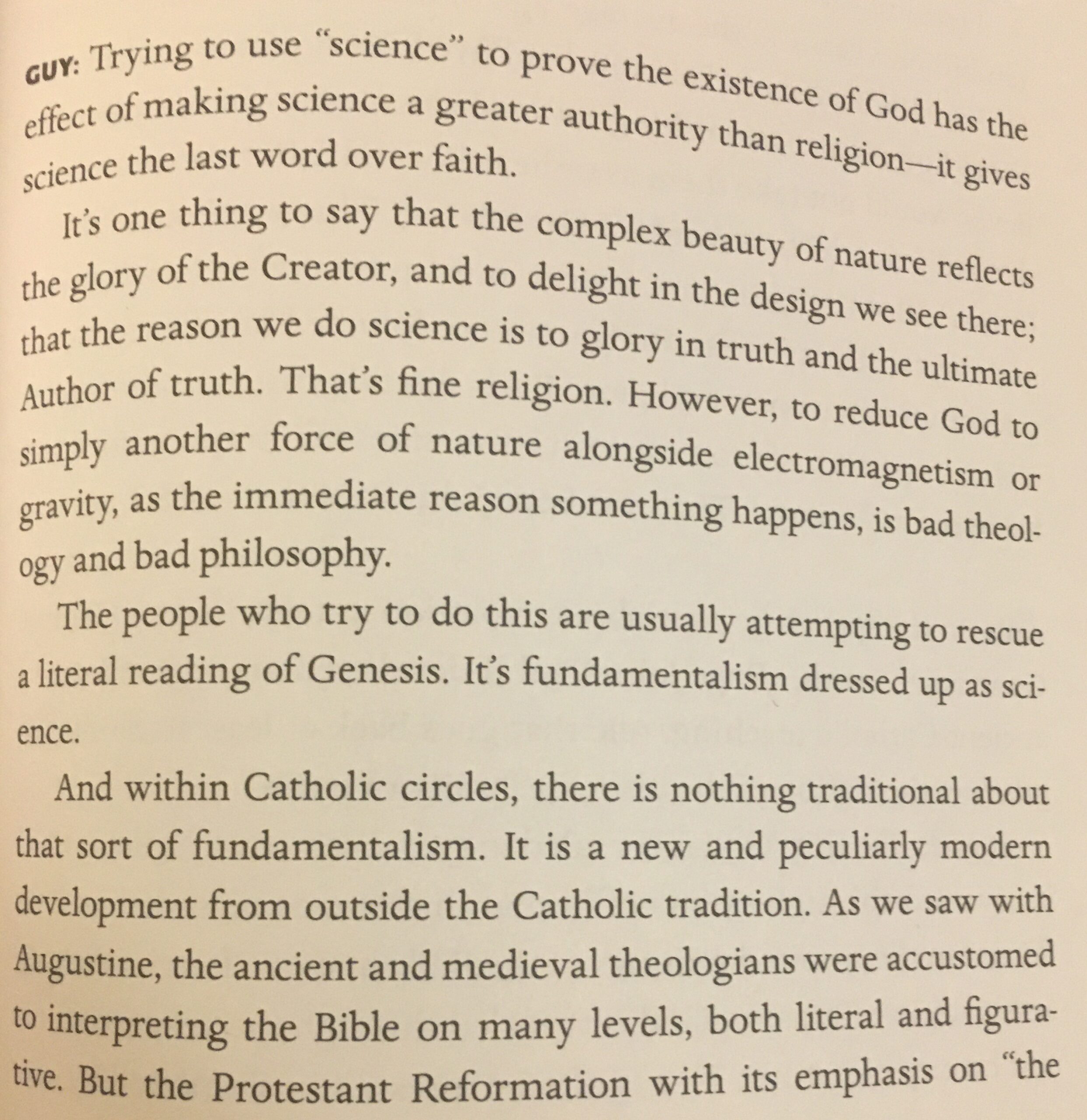Against Fundamentalisms
I’m enjoying reading Would You Baptize an Extraterrestrial? I’ve got more thoughts to share, if you will let me.
The science-faith tension always struck me like the poetry-medicine tension; I would not want to live life without either of them, but I would never want to ask poetry to do what I need medicine to do, nor would I ask a doctor to minister to the parts of my life that are nourished by poetry.*
(* Denver Ulland and Nichole Schaefer, my primary care physicians since I moved to Duluth, have been as attentive to the soul as anyone could ask a physician to be.)
I’ve been reading Br. Guy Consolmagno, an astronomer with the Vatican Observatory, on the questions of the relationship between faith and science, and I suppose, like a Good Jesuit would, he attends to history as an answer to the tensions of today. He notes that the tensions between science and religion, as they reverberate now, are an invention, really, of fundamentalisms that have arisen in the past 150 years. The insistence on incompatibility between science and religion is a product of life since the industrial revolution.
Catholic thinkers (and I knew this, but I didn’t remember it) have since the middle ages imagined that the Bible can be understood in multiple ways simultaneously. Wikipedia summarizes it this way:
The four senses of Scripture is a four-level method of interpreting the Bible. This method originated in Judaism and was taken up in Christianity by the Church Fathers.
In Kabbalah the four meanings of the biblical texts are literal, allusive, allegorical, and mystical. In Christianity, the four senses are literal, allegorical, tropological and anagogical.
- The literal interpretation of the events of the story for historical purposes with no underlying meaning.
- The typological: it connects the events of the Old Testament with the New Testament; in particular drawing allegorical connections between the events of Christ’s life with the stories of the Old Testament.
- The moral (or tropological), which is how one should act in the present, the “moral of the story”.
- The anagogical, dealing with the future events of Christian history, heaven, hell, the last judgment; it deals with prophecies.
So the literal interpretation of the Bible cannot be used to bludgeon science, because it is only one way to read the Bible. If one can see the Book of the Bible through four lenses, one can also see the Book of Nature through multiple lenses, perhaps. The mechanistic and soulless interpretation of the Book of Nature (science, read as a fundamentalist) cannot be used to bludgeon religion (or even other forms of spirituality).
Consolmagno unpacks some of what I’m saying here:
I’m a humanities scholar; anytime you tell me that there is more than one interpretation of anything, I am interested. Like I said, I’m enjoying reading Would You Baptize an Extraterrestrial?
Br. Guy Consolmagno will be in Duluth for the Sieur du Lhut Creativity Conference, which is free and open to the public, on April 19. He will also do public presentations at the College of St. Scholastica on the 20th, at the UMD Newman Center on the 19th, and virtually, from St. Paul, to the inside of the Alworth Planetarium on the 14th.
Leave a Comment
Only registered members can post a comment , Login / Register Here










No Comments